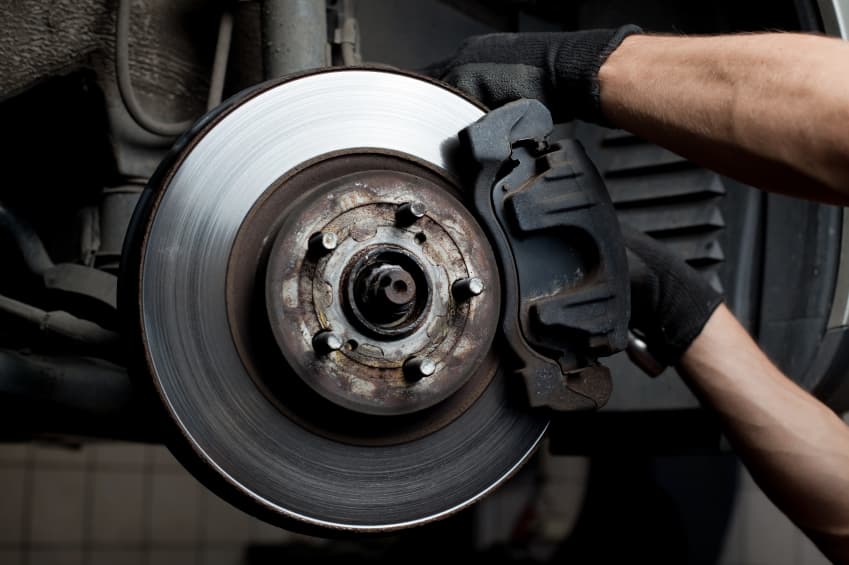
Taking care of your car’s brakes might not be the most glamorous part of car maintenance, but it’s one of the most important. Brakes are your car’s safety net, and staying on top of their condition means you and your loved ones can drive with confidence. The next time you’re out for a drive, give your brakes a little extra thought. A small investment in time and care now can save you a lot of trouble down the road.
When it comes to car maintenance, brakes are one of the most critical components to keep in top shape. After all, they are literally what keeps you safe by allowing you to stop when you need to. Yet, brake maintenance is often overlooked until there’s a problem. The good news is that taking care of your car’s brakes doesn’t have to be complicated or expensive. With a little attention and know-how, you can keep your brakes working smoothly and extend their lifespan. Here’s a friendly, straightforward guide to help you maintain your car’s brakes.
Why Brake Maintenance Matters
Think about the last time you had to stop suddenly in traffic or on a slick road. Your brakes are what helped you avoid an accident. Over time, though, brake pads wear down, brake fluid can get dirty or leak, and other parts can degrade. Ignoring these signs can lead to decreased braking performance and even dangerous situations. Regular brake maintenance not only helps keep you safe but can also save you money by preventing bigger repairs down the road.
Signs Your Brakes Need Attention
Before diving into maintenance tips, it helps to know when your brakes might be signaling a problem:
- Squeaking or squealing noises when you apply the brakes. This is often a sign that brake pads are worn out.
- Grinding sounds usually mean the brake pads are completely worn, and metal is rubbing against metal.
- Brake pedal feels soft or spongy, which could indicate air in the brake lines or low brake fluid.
- Car pulls to one side when braking, a sign of uneven brake pad wear or brake fluid issues.
- Vibrations in the brake pedal or steering wheel during braking, often caused by warped rotors.
If you notice any of these symptoms, it’s time to check your brakes or visit a mechanic.
Basic Brake Maintenance Tips
- Check Brake Pads Regularly
Brake pads are the part that actually presses against the rotors to slow your car down. Over time, they wear down and need replacing. Depending on your driving habits, brake pads typically last between 30,000 to 70,000 miles. You can check their thickness yourself by looking through the spaces in your wheels or during an oil change. If they look thin (less than ¼ inch), it’s time to replace them.
- Keep an Eye on Brake Fluid
Brake fluid is essential for transferring the force from your brake pedal to the brake components on your wheels. Over time, brake fluid can absorb moisture and get contaminated, reducing its effectiveness. Check the brake fluid reservoir under your hood every few months. If the fluid is dark or below the recommended level, it’s a good idea to have it flushed and replaced.
- Listen and Feel for Changes
Your ears and hands are powerful tools for brake maintenance. Pay attention if your brakes start making unusual noises or if the pedal feels different. Don’t ignore these signs—early detection can prevent costly damage.
- Avoid Hard Braking When Possible
While sometimes sudden stops are unavoidable, try to anticipate traffic and slow down gradually. Hard braking wears out your brake pads faster and can cause heat buildup, which damages brake components over time.
- Rotate Your Tires Regularly
Believe it or not, uneven tire wear can affect your braking performance. Rotating your tires helps ensure even wear on brake components and tires, promoting smoother and safer braking.
- Keep Your Wheels Clean
Brake dust and dirt can accumulate on your wheels and brake parts, which might affect performance. Regularly cleaning your wheels and brake area can help keep everything in good working order.
When to See a Professional
While many brake maintenance tasks are simple, some repairs are best left to professionals. If you experience persistent noises, brake warning lights on your dashboard, or if your brakes feel weak, it’s important to visit a trusted mechanic. They can perform a thorough inspection, replace worn parts, and ensure your brake system is safe.
